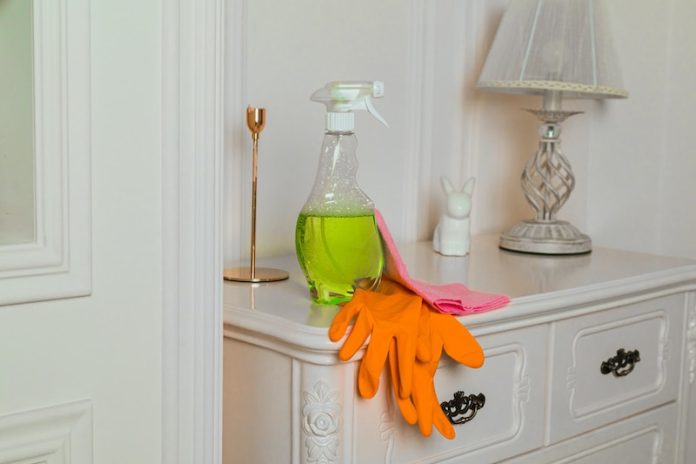
A recent study published in Chemosphere by scientists from the Environmental Working Group (EWG) has found alarming evidence regarding the potential health risks posed by common household cleaning products.
The study examined 30 cleaning items, such as air fresheners, multipurpose and glass cleaners, and discovered that these products may emit hundreds of volatile organic compounds (VOCs), many of which are hazardous.
Key Findings
Researchers detected 530 unique VOCs in the 30 tested products. Out of these, 193 VOCs were considered hazardous, linked to health concerns like respiratory damage, increased cancer risk, and developmental and reproductive impacts.
Even ‘green’ cleaning products were not entirely free from VOCs, although they emitted fewer VOCs compared to conventional products.
The indoor air quality is substantially affected by these VOCs, with estimates suggesting indoor air may be two to five times—and potentially up to 10 times—more contaminated by VOCs than outdoor air.
Health Implications
“People working in the cleaning industry have a 50 percent higher risk of developing asthma and a 43 percent higher risk of chronic obstructive pulmonary disease,” said Alexis Temkin, Ph.D., a senior toxicologist at EWG.
The risk extends to children as well, as some studies suggest that higher usage of certain indoor cleaning products can be correlated with a greater risk of asthma and wheezing in childhood.
Environmental Concerns
Samara Geller, EWG senior director of cleaning science, added that VOCs from cleaning products contribute to outdoor air pollution.
A 2018 study estimated that half of the VOCs responsible for air pollution come from consumer products.
Recommendations
For Consumers: Opting for ‘green’ and ‘fragrance-free’ cleaning products can reduce exposure to hazardous VOCs.
For Regulators: There is an urgent need for more stringent regulations concerning VOC emissions from household products.
For Manufacturers: The findings of the study call for an industry-wide shift towards formulating products that are both effective and safe for human health as well as the environment.
Conclusion
This study serves as a wake-up call for consumers, regulators, and the cleaning industry at large.
“Our findings emphasize a way to reduce exposure to hazardous VOCs—by selecting products that are ‘green,’ especially those that are ‘green’ and ‘fragrance-free’,” said Dr. Temkin.
As awareness grows about the potential health risks associated with common household cleaning products, the push for safer alternatives is likely to gain momentum.
If you care about liver health, please read studies about dairy foods linked to liver cancer, and coffee drinkers may halve their risk of liver cancer.
about cancer, please read studies about dry shampoo and cancer risk, and vitamin D supplements strongly reduces cancer death.
The research findings can be found in Chemosphere.
Follow us on Twitter for more articles about this topic.
Copyright © 2023 Knowridge Science Report. All rights reserved.



